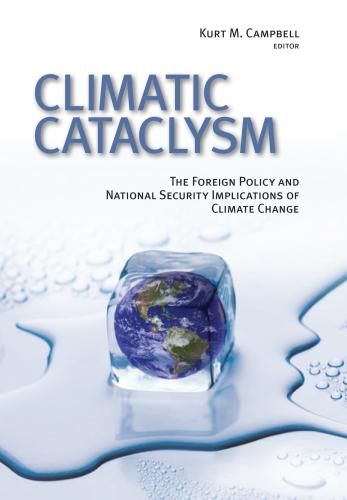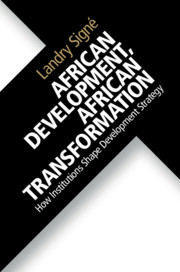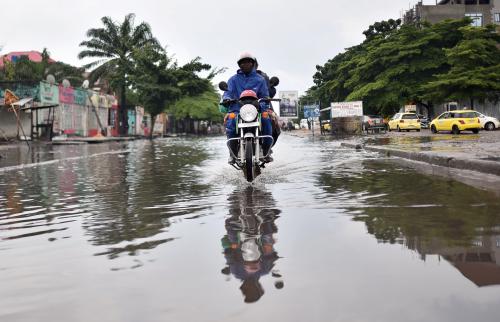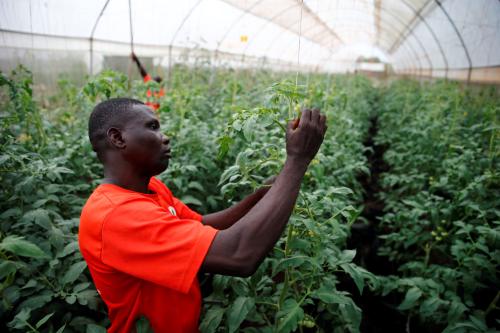U.N. General Assembly addresses Sustainable Development Goals, climate change
The United Nations General Assembly is in full swing in New York City, with climate change, financing for development, and sustainable development prominently featured throughout the week as well as speeches from African leaders, including Rwanda’s President Paul Kagame. On September 23, U.N. Secretary-General Antonio Guterres hosted the Climate Action Summit, at which leaders met to “mobilize political and economic energy at the highest levels to advance climate action.” Just two days before the U.N. summit, the Executive Office of the Secretary-General and the Envoy of the Secretary-General on Youth also hosted a Youth Climate Summit to “showcase the successes of youth activists, local change makers, innovators and entrepreneurs, and empower the next generation of leaders to take action.” The effects of climate change disproportionately impact countries in sub-Saharan Africa, despite the fact that the region contributes the least to greenhouse gases and related factors. In fact, African countries continue to lead when it comes to policies for combatting the phenomenon. Indeed, Reuters and RFI reported earlier this week that African countries were planning to call on the U.N. to declare a global climate emergency, as they face an increasing number of climate-related disasters such as hurricanes, floods, and droughts.
Also this week in New York, leaders met at the High-level Dialogue on Financing for Development, where policymakers and activists discussed putting public resources to work, including by curbing illicit financial flows, financing the Sustainable Development Goals and climate action, and addressing rising debt burdens, among other topics.
Zimbabwe inflation hits 300 percent as dollar shortages persist
On Thursday, the International Monetary Fund (IMF) announced that annualized inflation in Zimbabwe hit 300 percent in August. The IMF statement credited February’s currency reforms, which introduced a new currency and eliminated the U.S. dollar as legal tender, as a contributing factor. Since its introduction, the Zimbabwean dollar has depreciated from one-to-one against the U.S. dollar to 16.5 to 1 this week. According to the IMF, the country’s economy is expected to contract sharply this year as it recovers from the impact of cyclone Idai, lower power generation, and depressed agricultural output due to drought.
In related news, the ongoing shortage of U.S. dollars forced the city of Harare to shut down its water treatment plant on Monday as it ran out of water treatment chemicals. According to officials, the plant temporarily reopened on Wednesday but is expected to run out of chemicals again next week. The facility provides water to 2 million residents and an extended shutdown has raised concerns about the re-emergence of water-borne illnesses in Zimbabwe.
Sudan closes border with the CAR and Libya, launches economic plan
On Thursday, Sudan’s transitional government announced the closure of its border with the Central African Republic and Libya. The government cited unspecified security and economic “dangers” to justify the closures. In the past, cross-border arms trafficking has been a concern as both the Central African Republic and Libya have ongoing conflicts as well as governments with only limited control over parts of the country.
In other news, Sudan’s government announced a nine-month economic plan that it hopes would lower inflation and boost supplies of basic goods. The plan will leave bread and fuel subsidies in place through June 2020 and aims to reduced distortions in the economy by removing some tax exemptions. According to Finance Minister Ibrahim Elbadawi, 60 percent of economic activity is currently tax exempt. The plan will also look to restructure the banking sector and control spending by the government. At the same time, Sudan is requesting 2 billion dollars in funding from the World Bank. However, the country faces challenges in securing this funding as it is currently on the U.S. list of state sponsors of terrorism, and getting off the list can take 9-12 months.









Commentary
Africa in the news: UNGA, Zimbabwe, and Sudan updates
September 28, 2019